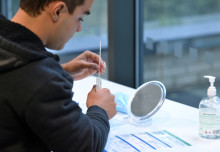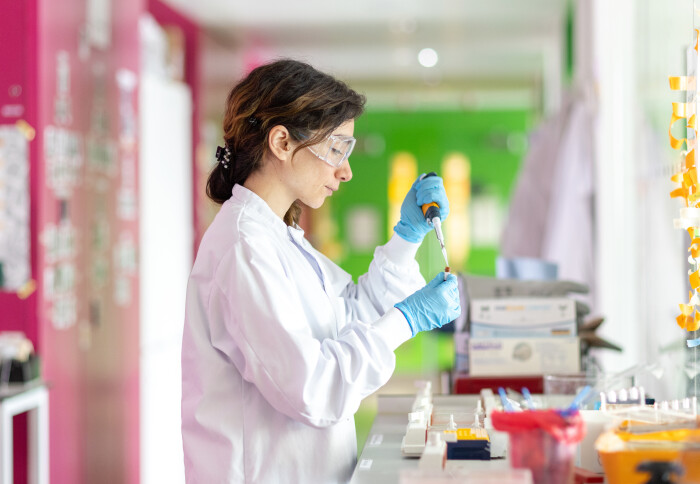

Imperial and Technical University of Munich are to join forces to supercharge future tech and research in sustainability, health and zero pollution.
The two world-leading universities have announced a new fund to bring together the best scientists from London and Munich to create breakthrough ideas that could transform the fight against pollution.
The Imperial-TUM Zero Pollution Advanced Fund will support several pioneering projects between the two universities and aims to attract funding and partnerships with industry in the UK and Germany.
"This Fund will supercharge the best ideas and technologies in the race to achieve zero pollution and a more sustainable society." Hugh Brady President of Imperial College London
The universities are searching for the most innovative ideas and technologies that offer disruptive impact.
Each project could receive up to £150,000 [approx. €170,000] initial funding from the universities to support exploratory research, small-scale experiments or the development of prototypes, workshops and PhD students.
The universities plan to work with industry to speed up the time it takes for innovative ideas underpinning clean-tech to reach commercialisation and development. For example, Imperial and TUM academics are already working on electric vehicle powertrain technology to improve performance and reduce carbon emissions in the sector. The universities are also collaborating on research into green fuels, batteries and autonomous transport.
Imperial’s President Hugh Brady said: “Imperial and TUM are two of Europe’s science powerhouses. This Fund will supercharge the best ideas and technologies in the race to achieve zero pollution and a more sustainable society.”
"I am convinced that the solutions to many of the global problems we face will come from the talents that study and research at our institutions." Thomas F. Hofmann President of TUM
TUM’s President Thomas F. Hofmann said: "As leading universities, we are obliged to do our best to save our planet. I am convinced that the solutions to many of the global problems we face will come from the talents that study and research at our institutions. The Zero Pollution Advanced Fund will surely facilitate their endeavors."
The announcement marks a new phase in the strategic partnership between Imperial and TUM against the backdrop of the UK’s association to Horizon Europe, a UK Research and Innovation (UKRI) and German Research Foundation (DFG) agreement to support research and innovation collaboration, and a new innovation partnership between the UK and Bavaria.
Transition to Zero Pollution
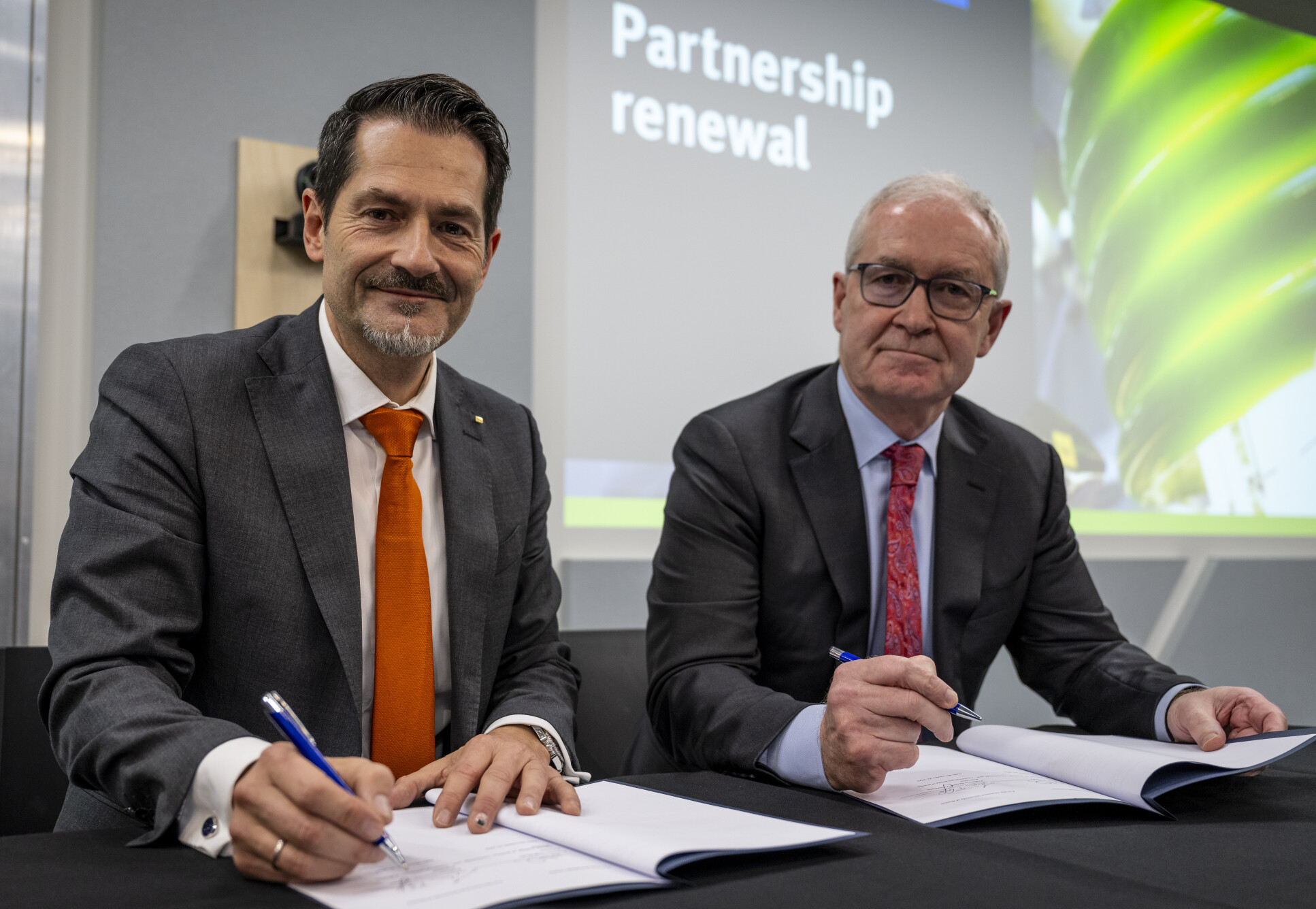
The new Advanced Fund is the flagship fund of the Imperial–TUM Zero Pollution Network set up last year to bring together scientists, industry, governments and other partners to develop and translate solutions to some of the greatest sustainability challenges and combined threats of global pollution, biodiversity loss and climate change.
The aim of the Network is to enable society to shift towards a zero pollution economy where the environmental and health impacts of global pollution are mitigated at source – designing technology interventions in a holistically sustainable framework. To coincide with the launch of the Advanced Fund, the Network hosted a symposium on the decarbonisation of transport featuring academic and industry leaders, including Dr Mark Bentall, Head of Research and Technology, at Airbus.
In 2020 Imperial launched its Transition to Zero Pollution initiative which aims to inspire fundamental changes in areas such as the way resource is exploited, how we produce food and energy, and will help mitigate the impact of air pollution on people's health.
Future of transport
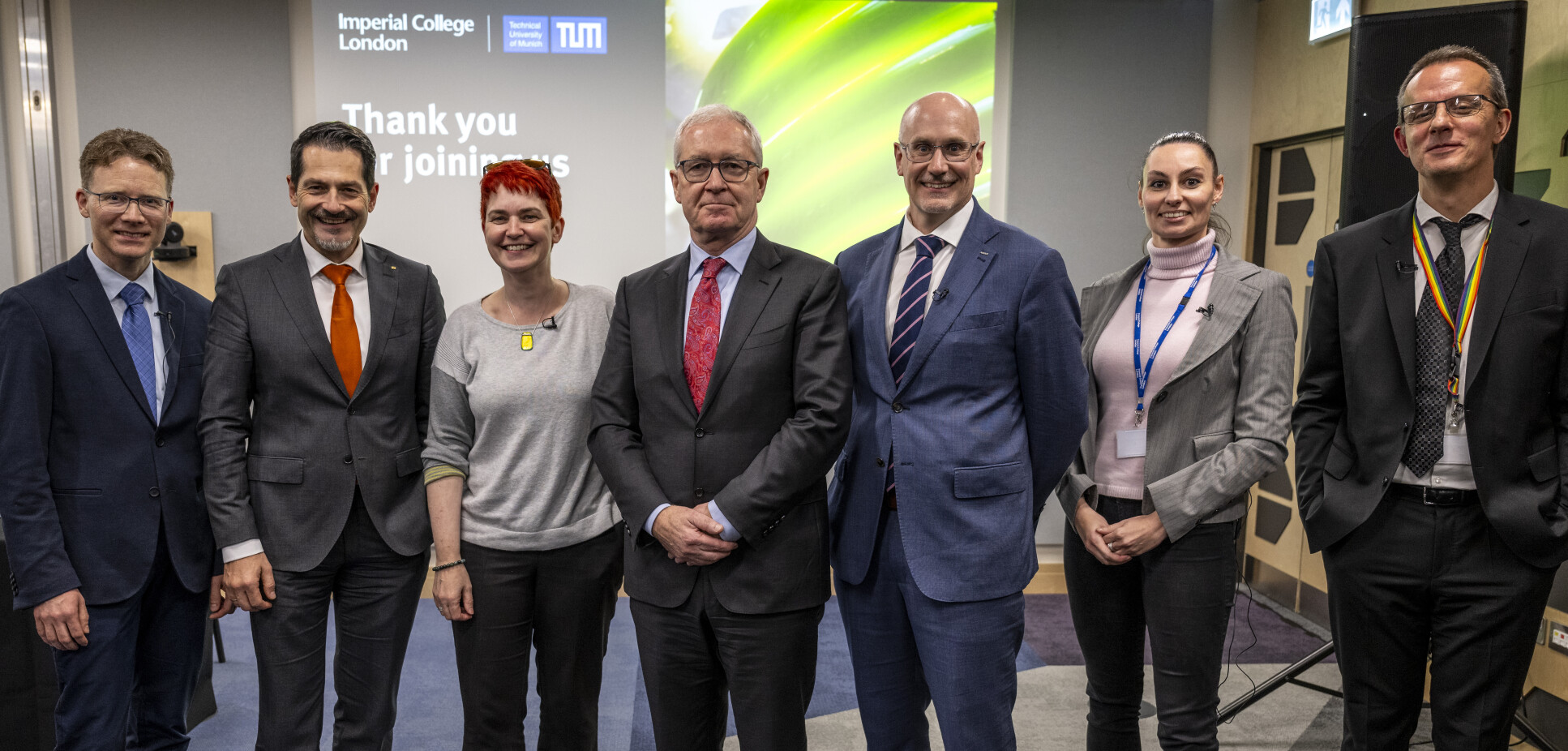
Scientists and industry leaders discussed the future of sustainable transport at the Imperial-TUM Zero Pollution Network annual symposium.
Hosted at Imperial, the event brought together leaders from aerospace, aeronautics research and materials science to discuss ways to decarbonise transport systems.
The reception also included an address on the importance of science and technology collaboration from Germany’s Ambassador to the UK, Miguel Berger.
Dr Mark Bentall, Head of Research & Technology at Airbus, gave the keynote speech and spoke about the company's ambition to bring a zero pollution commercial aircraft to market by 2035.
Dr Bentall said: “What comes out of the science really drives our priorities. We are working with Imperial’s Department of Mathematics on a research programme on laminar flow control which is looking at drag reduction on aircraft."
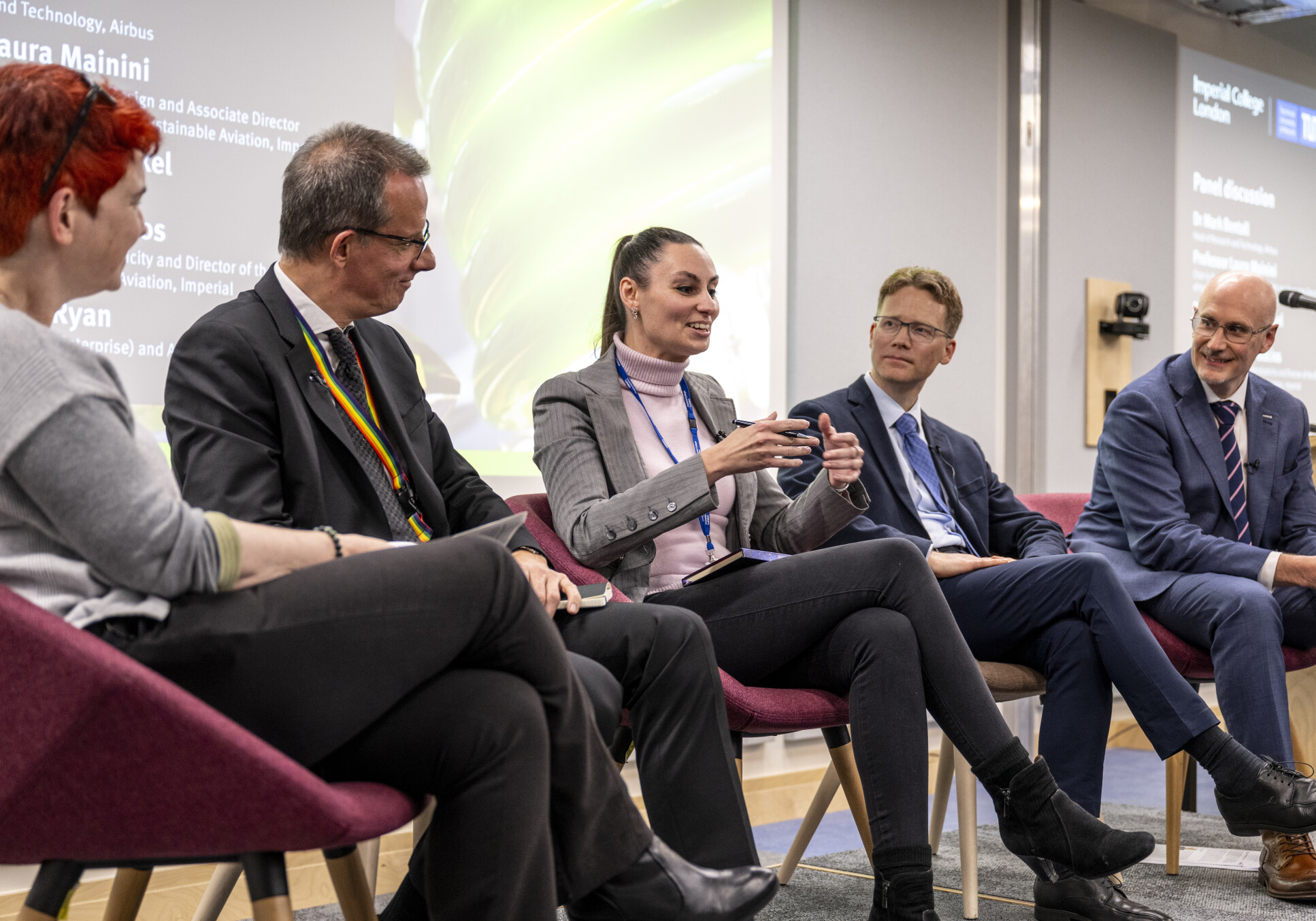
Dr Bentall was then joined on a panel of academic experts from Imperial and TUM including Professor Rafael Palacios, Director of the Brahmal Vasudevan Institute for Sustainable Aviation (Imperial's flagship multidisciplinary research centre in net-zero aviation technologies), Professor Laura Mainini, from Imperial’s Department of Aeronautics, and TUM's Professor Rolf Moeckel, Professor of Transport Behavior.
Professor Mainini said: “We need to invest a lot of development in advanced computational methods to leverage opportunities from data sensors in areas such as aircraft design.”
A point of debate at the session was the impact of potential restrictions on people’s freedom to use transport to curb emissions and how pricing policies could worsen equity between rich and poor.
Professor Rolf Moeckel, Professor of Transport Behavior, TUM, said: “We need to think about restrictions - limiting trips or car ownership. Just pricing alone is not a solution as leads to equity gap with affluent who can buy out of restrictions.”
The discussion was moderated by Professor Mary Ryan, Imperial’s Vice-Provost (Research and Enterprise).
Zero pollution startups
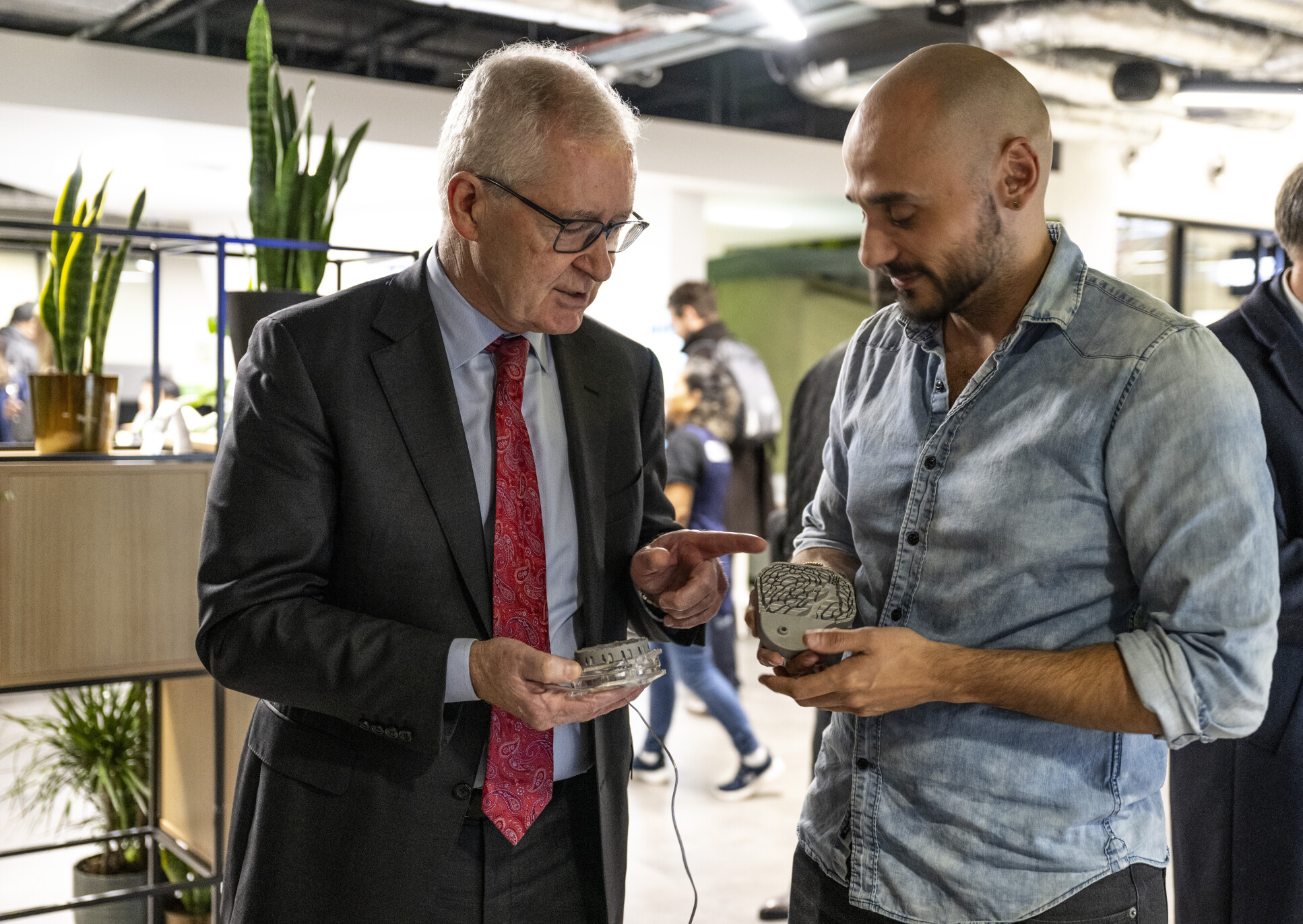
Imperial and TUM have a Joint Academy of Doctoral Studies (JADs) programme with the aim of co-developing cross-disciplinary clusters of PhD students who have access to world-leading academic supervisors and state-of-the art facilities at both institutions. Some of the students involved in the programme and the Zero Pollution Network demonstrated their work at the symposium. For example, spinout TOffeeAM have developed design software for advanced manufacturing which has applications in aerospace, automotive and energy sectors.
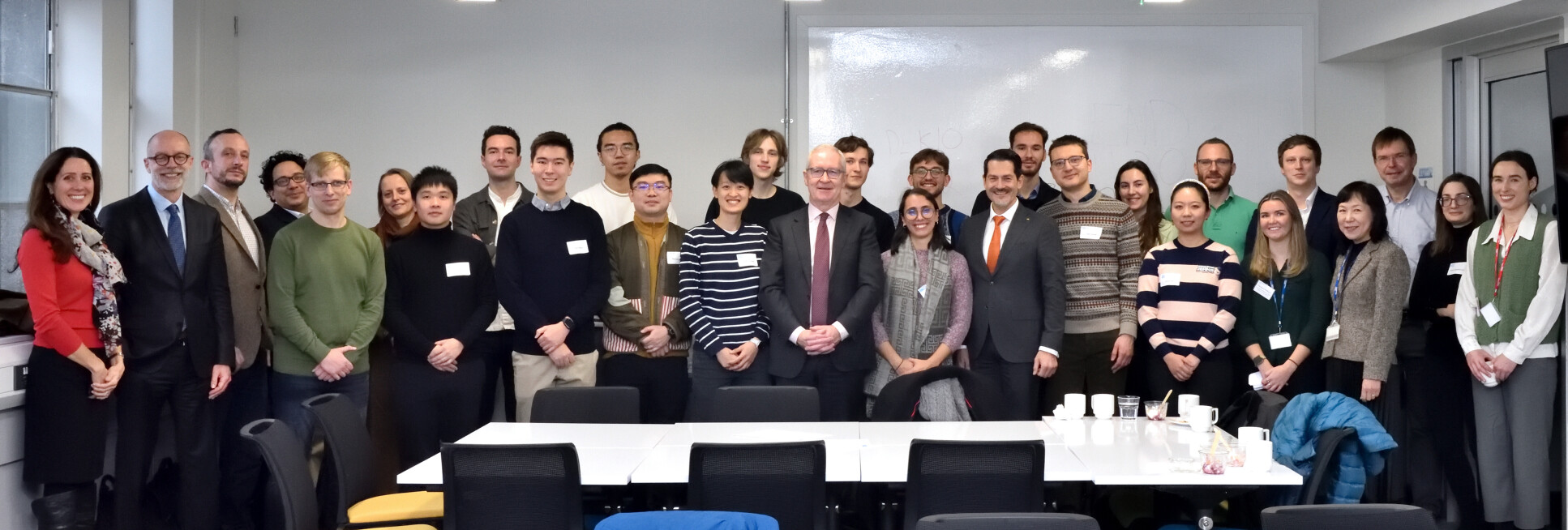
Imperial also hosted the first in-person annual JADS symposium. PhD students from both institutions took part in a day of training and networking to enhance both their professional, and personal development. The programme now has four international Doctoral Training Clusters; AI, Healthcare & Robotics (2020); Mathematics of Information (2021); Circular Economy (2022) and Zero Pollution (2023). To date there are 17 collaborative projects with 34 PhD students in total. These projects provide opportunities for follow-on research funding and industry engagement.
Article text (excluding photos or graphics) © Imperial College London.
Photos and graphics subject to third party copyright used with permission or © Imperial College London.
Reporter
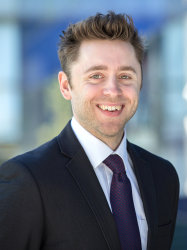
Stephen Johns
Communications Division

Contact details
Tel: +44 (0)20 7594 9531
Email: s.johns@imperial.ac.uk
Show all stories by this author



